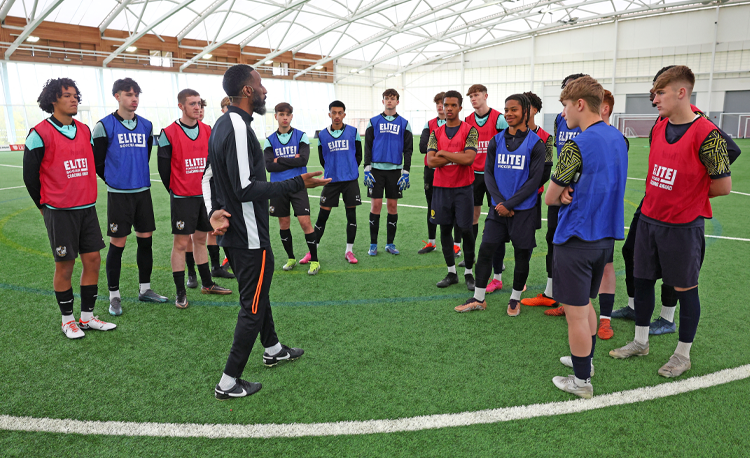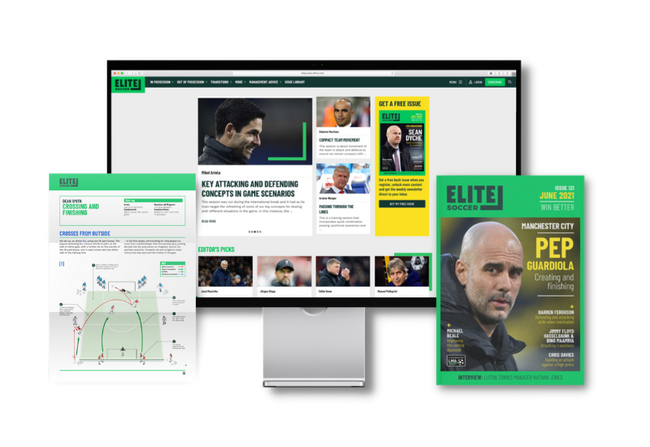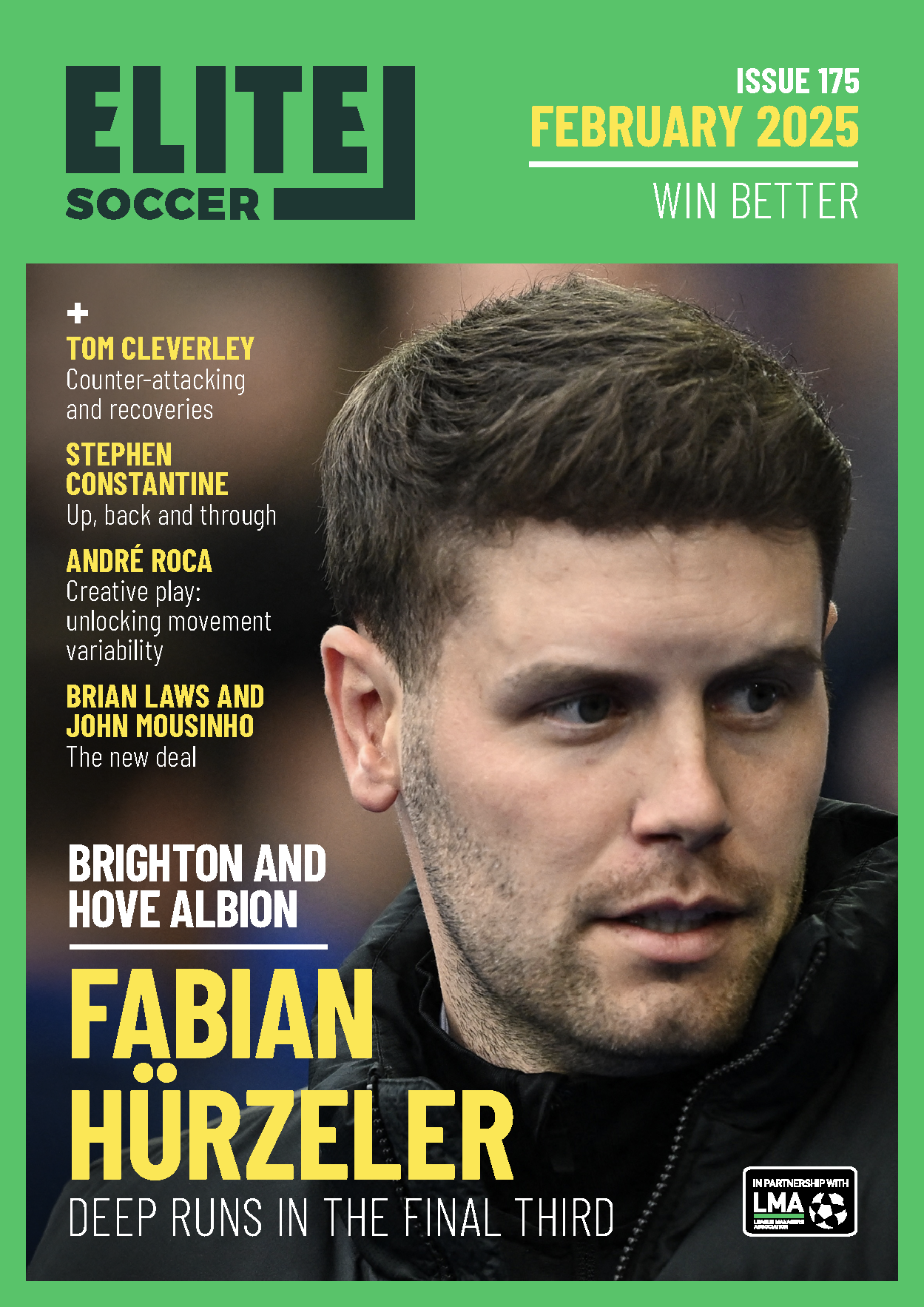Managing difference within an academy group
John Allpress looks at how to modify your coaching to meet your players’ individual needs

In any group, your players will be of varying abilities as well as varied learning styles, and will respond to you differently as well. As a coach, you can manage difference within a group in a variety of ways:
- Varied intervention strategies
- What you teach
- What you get the players to practise
- How you use different practices
- The learning and practice environments you employ (eg best with best etc.)
The aim is to ensure that all players are engaged and challenged in their learning and practice endeavours. Work must be geared to the standard of the best players in the group and the others must strive to attain that level.
However, there is no reason to assume the make-up of the group will be the same at the end of the season as it was at the beginning. That is why personalised challenges and focused deliberate practice is so vital to a player’s progress.
Things change and everybody in the group needs to feel they belong, can make progress and develop. The players in the peloton should not just be there to keep the group honest but be challenged in such a way that they can see a way to lead it. In this way, the best players, whoever they may be at the time, are always kept on their toes.
Editor's Picks
Deep runs in the final third
Using the goalkeeper in build-up play
Pressing principles
Intensive boxes drill with goals
Penetrating the final third
Creating and finishing
My philosophy
Pressing initiation
Compact team movement
Coaches' Testimonials

Alan Pardew

Arsène Wenger

Brendan Rodgers

Carlos Carvalhal

José Mourinho

Jürgen Klopp

Pep Guardiola

Roy Hodgson

Sir Alex Ferguson

Steven Gerrard
Coaches' Testimonials

Gerald Kearney, Downtown Las Vegas Soccer Club

Paul Butler, Florida, USA

Rick Shields, Springboro, USA

Tony Green, Pierrefonds Titans, Quebec, Canada
Join the world's leading coaches and managers and discover for yourself one of the best kept secrets in coaching. No other training tool on the planet is written or read by the calibre of names you’ll find in Elite Soccer.
In a recent survey 92% of subscribers said Elite Soccer makes them more confident, 89% said it makes them a more effective coach and 91% said it makes them more inspired.
Get Monthly Inspiration
All the latest techniques and approaches
Since 2010 Elite Soccer has given subscribers exclusive insight into the training ground practices of the world’s best coaches. Published in partnership with the League Managers Association we have unparalleled access to the leading lights in the English leagues, as well as a host of international managers.
Elite Soccer exclusively features sessions written by the coaches themselves. There are no observed sessions and no sessions “in the style of”, just first-hand advice delivered direct to you from the coach.





